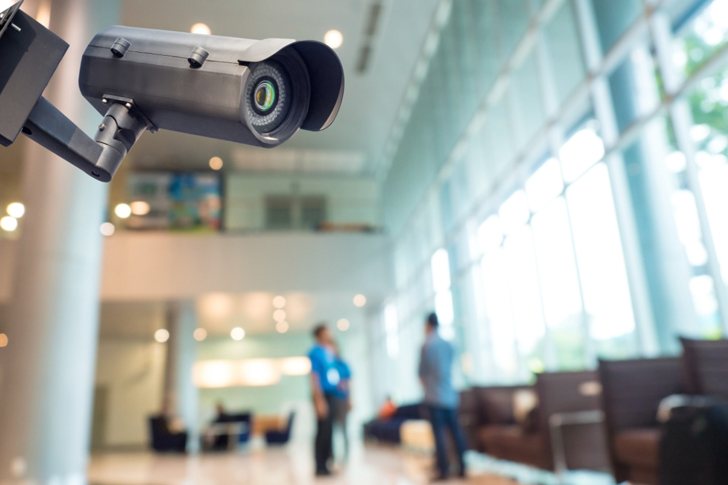Security Camera Options for Your Business
In today’s technology-driven world, the security of business assets and the safety of employees should never be overlooked. Security cameras play a critical role in enhancing security protocols, offering both real-time monitoring and historical data that can help in case of any incidents. Choosing the right security camera for your business is not just about capturing footage; it’s about integrating a complete system that aligns with your security needs. This comprehensive guide explores various security camera options and their functionalities to help you make an informed decision.

Understanding the Importance of Business Security Systems
Before delving into the types of security cameras, let’s consider why businesses need them. According to a report by the National Retail Federation, there were over $61.7 billion in losses due to shrinkage in 2019, much of which was attributed to theft or fraud that could be deterred by effective surveillance. Moreover, the presence of security cameras can enhance employee productivity and help in disputes resolution effectively, saving potential costs related to legal conflicts.
Types of Security Cameras
Security cameras come in various forms, each suited for different purposes. The most common types include:
- Fixed Cameras: Often used in environments where a constant watch on a specific spot is needed. They are the simplest form of security cameras and typically cost less, making them a popular choice for small businesses.
- Dome Cameras: Enclosed in a dome-like housing, these cameras are harder to tamper with and can provide a 360-degree view. They are ideal for retail businesses where a more comprehensive surveillance angle is required.
- PTZ (Pan, Tilt, and Zoom) Cameras: These cameras offer the ability to view in multiple directions and zoom in on specific activities. Ideal for covering large areas like warehouses or outdoor spaces, they can be controlled manually or programmed for automatic patrolling.
- IP Cameras: These network cameras can transmit video over an IP network, allowing owners to monitor footage remotely. With 24% of businesses using IP video surveillance, according to a Security Sales and Integration report, it’s clear they’re favored for their flexibility.
- Wireless and Wired Cameras: Wireless cameras offer easy installation and flexibility but can be prone to interference. Wired cameras, while requiring more complex installation, generally provide more stable data transmission.
Each type has its unique set of features and limitations, so understanding the specific security needs of your business is crucial in choosing the most appropriate camera.
Key Features to Look For in a Security Camera
When selecting security cameras, consider the following essential features:
- Resolution: High-resolution cameras provide clearer images, which are crucial for identifying faces or license plate numbers. Today, resolutions can range from 720p to 4K, depending on your needs and budget.
- Night Vision: For businesses that need round-the-clock surveillance, choosing cameras with infrared night vision capability is essential.
- Field of View: This determines how wide an area your camera can cover. A wider field of view means you may need fewer cameras to cover the same space.
- Storage Options: Modern security cameras offer cloud-based storage solutions, making it easier and more secure to store and access recorded footage from anywhere.
- Smart Features: Features like motion detection, sound detection, and real-time alerts can enhance your security capabilities by automating certain tasks and sending notifications during unusual activities.
Advanced options such as facial recognition and integration with other security systems can further bolster your business’s security infrastructure.
Cost Considerations
Cost is a significant factor in the decision-making process. Initial costs for installing a security camera system can range from a few hundred to several thousand dollars, depending on the complexity and scalability of the setup. According to HomeAdvisor, the average cost to install a surveillance system is about $1,330. Keep in mind that there will also be ongoing costs related to maintenance and storage. Planning your budget according to these parameters will prevent overspending and ensure that the investment is manageable over the long term.
Regulatory Compliance and Privacy Concerns
Business owners must also consider legal implications related to surveillance. Regulations may vary significantly depending on your location, but generally, it’s essential to respect people’s privacy both in public and work environments. In the EU, for example, businesses must comply with GDPR (General Data Protection Regulation), which governs the processing of personal data through video surveillance. Ensuring that your security system adheres to local laws and ethical guidelines is not just a legal requirement but also builds trust with your employees and customers.
Conclusion
Investing in a security camera system is crucial for enhancing the safety and security of your business. With the variety of cameras available, each with specific features tailored to different types of environments and needs, businesses are more equipped than ever to deter theft and ensure a safe working environment. Remember to align the choice of cameras with your business requirements, consider essential features, comply with legal standards, and manage costs effectively. A thoughtfully implemented security camera system can provide peace of mind and a solid return on investment by preventing loss and ensuring operational continuity.







Recent Comments